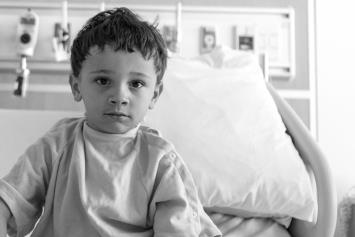
Practice Tool
When treating common illnesses such as ear infections and strep throat, it is important to know how best to use prescription antimicrobial drugs. The continued misuse and overuse of common antimicrobials is contributing to antimicrobial resistance and other health care challenges.
Clinical Pathways
Bronchiolitis
This clinical pathway outlines the evaluation and management of infants and infants and children with bronchiolitis in the inpatient setting.
Bronchiolitis
This clinical pathway describes the definition, differential diagnosis and management of bronchiolitis in emergency department and urgent care settings.
Helping Hands

Bronchiolitis
This Helping Hand™ covers bronchiolitis, which is an infection of the small airways (bronchioles) caused by a virus. The most common viruses that cause it are RSV, para influenza virus, rhinovirus (common cold), human metapneumovirus and adenovirus. Bronchiolitis is also often called "RSV infection."

Bronchopulmonary Dysplasia
This Helping Hand™ covers bronchopulmonary dysplasia (BPD), which is a term used to describe long-term breathing problems for premature babies. It involves abnormal development of the lungs, and sometimes the lungs are scarred and inflamed.

Respiratory Distress
This Helping Hand™ is about respiratory distress illnesses in children. These illnesses cause breathing problems. Call 911 or take your child to the closest emergency room if you think they're having trouble breathing.

RSV Infection (Respiratory Syncytial Virus)
Respiratory syncytial virus (RSV) is most common from fall to spring. Symptoms of RSV include sneezing, stuffy or runny nose, sore throat and fever. For healthy babies, it is like getting a cold and can be treated at home. In some infants, RSV can be very serious and may require a hospital stay.
